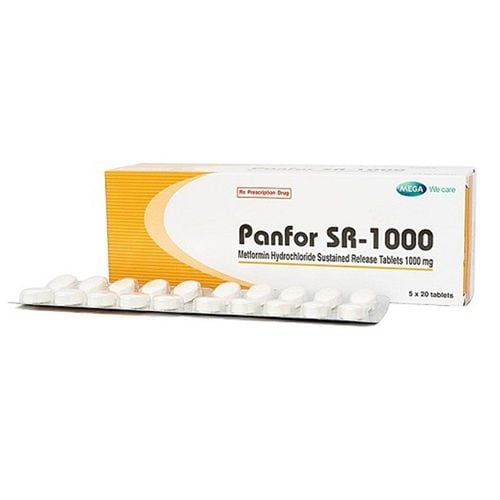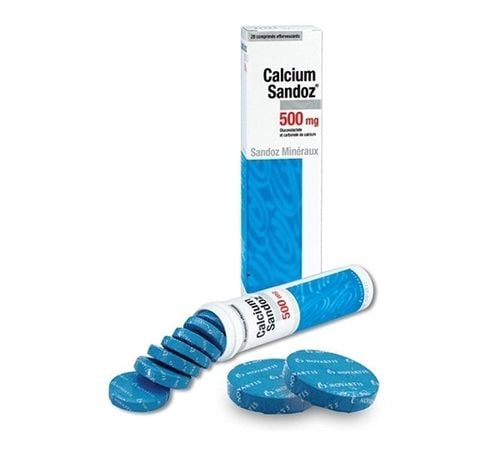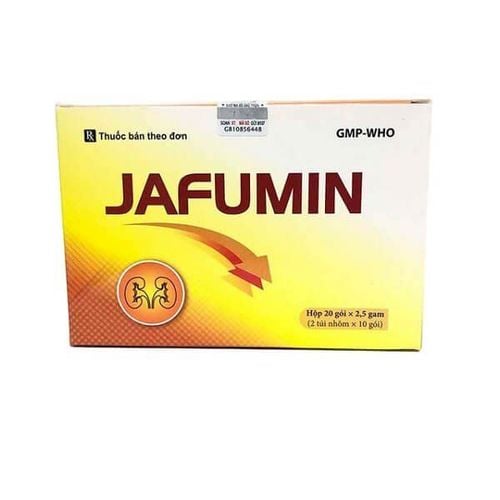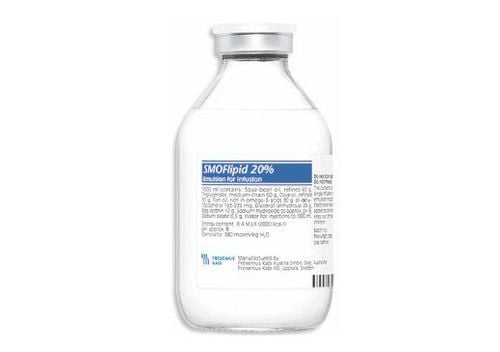This is an automatically translated article.
Zinc is an indispensable micronutrient for physical and intellectual development in children. Therefore, it is extremely important to fully supplement the zinc requirements in the developmental stages of children. Today's article will provide you with complete information about "what should children with zinc deficiency supplement".1. What role does zinc play in the body?
Zinc is a micronutrient present in many organs in the body with a concentration of about 2 - 3 g, of which they are most distributed in the testicles (300 μg/g), hair (150 μg/g), bone (100 μg/g), kidney, skeletal muscle, skin, brain... In young children, zinc plays a role in cell proliferation and biological processes taking place in the body right from the fetal stage to the fetal stage. when the child is an adult. Accordingly, the specific role of zinc micronutrients is as follows:
Zinc participates in protein synthesis and energy metabolism. Participates in the composition of digestive enzymes, supports immune activity. Participating in the absorption and transport of vitamin A. Zinc plays a supporting role in insulin activity and metabolism. Role in the process of neutralizing oxidative radicals and helping wounds heal quickly. Zinc affects cognition, perception and fetal development. Affects spermatogenesis and sex hormones. In addition, zinc micronutrients also participate in protecting olfactory and taste cells to help children eat better, strengthen the immune system, improve physical strength, and develop children's height. Therefore, zinc deficiency in children easily leads to medical conditions such as malnutrition, growth retardation, low immune system.
2. What are the common causes of zinc deficiency in children?
Research from scientists shows that zinc deficiency in children is often due to the following reasons:
Causes of anemia, because iron and zinc microelements have almost the same origin and distribution in food, the factors The effect on micronutrient absorption of iron and zinc is similar. The amount of zinc in the body is reduced due to the use of many antibiotics. For children who have to take a lot of antibiotics to treat diseases, it will lead to a risk of zinc deficiency in the body. The daily diet does not provide enough zinc as well as other nutrients. Some cases of zinc deficiency in children are congenital causes, because the mother during pregnancy is not supplemented with adequate nutrients.

Một số loại thuốc kháng sinh có thể khiến trẻ em thiếu kẽm
3. How does zinc deficiency manifest in children?
Although there is no specific indicator that accurately reflects zinc deficiency and there are no obvious symptoms, zinc deficiency will affect the body's development and immunity. Therefore, most children with zinc deficiency have the following manifestations:
Children do not have appetite, which leads to anorexia, anorexia and less eating. The digestive system is affected such as mild constipation, slow digestion, feeling of nausea and vomiting. Children are stunted in height, stunted, anemic, have less pink skin, and are malnourished, especially stunted. Children often wake up from sleep, often tossing, upset and crying. The child's immune system is impaired, manifested by the child's susceptibility to illness, recurrent infections of the respiratory tract, skin inflammation, digestion, slow wound healing, etc. Children with zinc deficiency, if prolonged, will lead to serious illness. growth retardation, delayed puberty, decreased activity of the endocrine glands, especially the thyroid gland... due to the reduced rate of protein and DNA synthesis. Therefore, "what zinc deficiency children supplement" is a common question of many parents.
4. What should children with zinc deficiency supplement?
Children with zinc deficiency should get enough of this micronutrient through methods such as a nutritious diet, promotion of exclusive breastfeeding in the early stages of life, prevention and treatment of diseases related to zinc deficiency...
However, children have a greater need for zinc than adults due to their rapid growth rate and the body's need to synthesize more zinc-containing proteins for synthesis reactions. , metabolism... At each different stage, children need different zinc requirements to optimize their intellectual and physical development, especially their height.
4.1. For children after birth, breast milk is a rich source of zinc, safer and easier to absorb than fresh milk or formula. Therefore, mothers should exclusively breastfeed their babies for the first 6 months and continue until the baby is 2 years old. However, the nutritional content of breast milk will gradually decrease over time, so it is necessary to add micronutrients to the baby through the daily menu.
So "what should children with zinc deficiency eat", according to recommendations from experts, building a daily nutritional menu for zinc-deficient children should combine from 4 food groups, including iron-rich foods. /zinc, providing enough nutrients and energy. Some foods rich in zinc can be listed as follows:
Red meat: Red meats such as pork, beef or poultry are considered to be the nutrient group with the most zinc. This is also a food group that can be processed with many different dishes to help children change their taste, not boring. Oysters: A food rich in zinc micronutrients, about 5 mg of zinc is present in each oyster. Milk and dairy products such as yogurt, buttermilk, besides providing calcium for the body, they also contain an abundant amount of zinc. Shrimp, crab and seafood: Children's diet should contain shrimp, crab and seafood one day a week to help supplement children with the necessary amount of zinc for the body. Vegetables such as broccoli, sweet potatoes, peanuts, cooked... It is estimated that 125 g of fresh fruit and vegetables contain 0.4 mg of zinc. In addition to supplementing zinc for the body, vegetables and fruits also provide a lot of fiber for children and help children not be constipated.

Trẻ em thiếu kẽm có thể bổ sung qua chế độ dinh dưỡng hàng ngày
4.2. Supplementing with zinc by taking zinc supplements Although supplementing with zinc through nutrition or culture technology is still guaranteed to be natural, easy to absorb and safe for your baby's health, Zinc supplementation for children with oral medications should be prescribed by a pediatrician or a nutritionist. Parents absolutely must not arbitrarily use zinc supplements for children.
Use medicine to supplement zinc with a dose equivalent to the daily physiological zinc requirement according to the age of the child. Accordingly, children's zinc needs by age are as shown in the following table:
Table of children's daily zinc needs by age
| Độ tuổi của trẻ | Nhu cầu kẽm |
|---|---|
| < 6 tháng tuổi | 2 mg |
| 7 – 12 tháng | 3 mg |
| 1 – 3 tuổi | 3 mg |
| 4 – 8 tuổi | 5 mg |
| 9 – 13 tuổi | 8 mg |
| > 14 tuổi |
Bé trai: 11 mg Bé gái: 9 mg |
4. Note when supplementing with zinc in children
In addition to a reasonable diet for children with zinc deficiency, parents need to pay attention to a number of issues when building a child's diet as follows:
Mothers should not supplement with calcium or iron at the same time. time with zinc. The use of calcium together with zinc will reduce absorption and increase the body's excretion of zinc, the best time is after 2 hours of zinc supplementation. Combining vitamin C and zinc enhances the absorption of both ingredients. Therefore, mothers should use green vegetables and fruits that contain a lot of vitamin C, thereby helping children to absorb them more easily, strengthening their immunity to help children develop quickly. In addition to zinc micronutrients, children need to be supplemented with necessary micronutrients: selenium, chromium, vitamins B1 and B6, ginger, acerola fruit extract (vitamin C), ... to improve taste, eat delicious , reach the right height and weight and exceed the standard, have a good immune system, strengthen the resistance to get sick less often and have fewer digestive problems.
The improvement of symptoms can take place for a long time, so it is recommended that parents be calm and persistent when supplementing with nutrients for children, even through eating or functional foods. In particular, the use of functional foods should choose those of natural origin that are easily absorbed, do not allow simultaneous use of many types or continuously change the types of functional foods.
To have more knowledge about taking care of children by age, you should regularly visit the website vimec.com and make an appointment with the leading doctors, Pediatricians - Nutritionists when you need advice.













